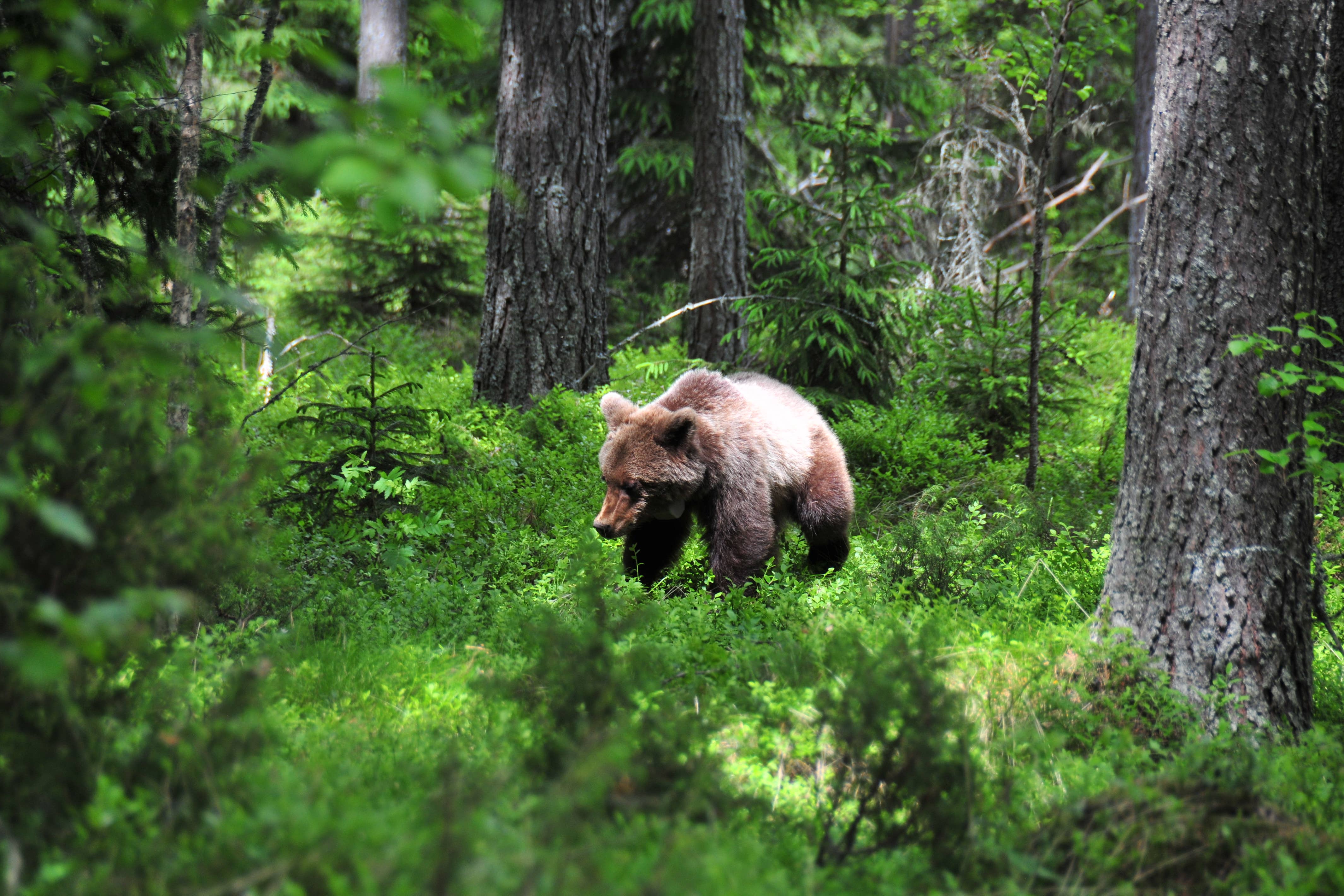Scientists poke hibernating bears to discover secrets of blood clots
The findings could lead to new medicines to help people who have inherited blood-clotting disorders, researchers say.

Your support helps us to tell the story
From reproductive rights to climate change to Big Tech, The Independent is on the ground when the story is developing. Whether it's investigating the financials of Elon Musk's pro-Trump PAC or producing our latest documentary, 'The A Word', which shines a light on the American women fighting for reproductive rights, we know how important it is to parse out the facts from the messaging.
At such a critical moment in US history, we need reporters on the ground. Your donation allows us to keep sending journalists to speak to both sides of the story.
The Independent is trusted by Americans across the entire political spectrum. And unlike many other quality news outlets, we choose not to lock Americans out of our reporting and analysis with paywalls. We believe quality journalism should be available to everyone, paid for by those who can afford it.
Your support makes all the difference.Scientists have been poking bears to discover the secrets of blood clots.
Hibernating bears, paralysed humans and pigs kept in small enclosures all avoid dangerous blood clots despite not moving for extremely long periods.
A new study suggests that reduction of a key protein prevents the formation of blood clots in all three mammal species when they are still for days, weeks, months or even years at a time.
The findings could lead to new medicines to help people who have inherited blood-clotting disorders that put them at risk for pulmonary embolism, heart attack and stroke.
Now we know that Hsp47 is so important, we can begin to look for new or existing medicines that might be able to inhibit the function of this protein in blood clotting and protect mobile people who are prone to clots
People who have taken a long-haul flight might have taken on board advice to prevent a dangerous blood clot – deep vein thrombosis – while they sit still for multiple hours.
This could involve wearing compression socks to keep the blood from pooling in your legs or walking around on the plane every now and again.
While most people will not experience a clot if they take care on a flight, for those who are pre-disposed to them due to genetic factors, there is a serious risk.
The discovery that a protein known as Hsp47 is dramatically reduced, by 55 times, when someone is immobilised for a much longer period than a flight, could lead to new medicines, researchers say.
Professor Jon Gibbins, who led the work at the University of Reading, said: “It seems counterintuitive that people who have severe paralysis don’t appear to be at higher risk of blood clots.
“This tells us that something interesting is happening.
“And it turns out that reducing levels of Hsp47 plays a key role in preventing clots, not just in humans, but in other mammals, including bears and pigs.
“When we see something like this in multiple species, that reinforces its importance. Having Hsp47 must have been an evolutionary advantage.”
Prof Gibbins added: “Now we know that Hsp47 is so important, we can begin to look for new or existing medicines that might be able to inhibit the function of this protein in blood clotting and protect mobile people who are prone to clots.”
The protein is released by platelets – the sticky blood cells that trigger blood clotting.
Clotting is usually an important response to an injury, to prevent blood loss, and Hsp47 is one of the necessary ingredients to enable platelets to do their job.
Researchers looked at the role of the protein in clotting function and found that when released into the blood of bears, mice and humans it promoted conditions that may give rise to deep vein thrombosis.
Prof Gibbins said: “We aren’t totally sure how but it appears that there is something about movement that keeps Hsp47 at an appropriate level.
“It could be that the mechanical forces involved in moving around actually have an impact on gene expression, dramatically increasing the amount of Hsp47 that circulates in the blood.”
The team took blood samples from bears in winter, as they hibernated, and in summer, while awake and moving around.
They also compared people who were immobilised with those who can move and walk.
Finally, pigs kept in small pens were compared with others that were free to move around in barns.
In all three cases, experiments showed that the absence of movement was associated with having far less Hsp47.
The research from the University of Reading, with partners in Denmark, Germany, Norway and Sweden, is published in Science.